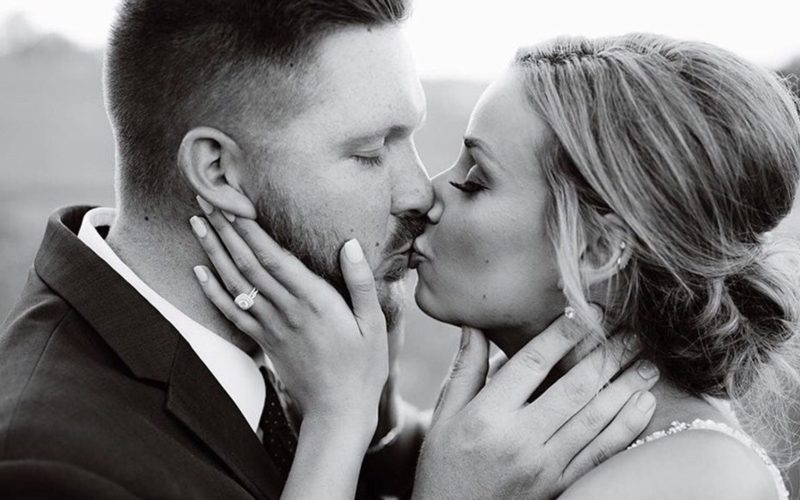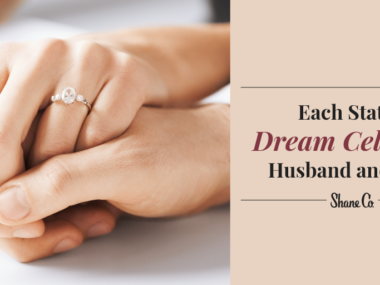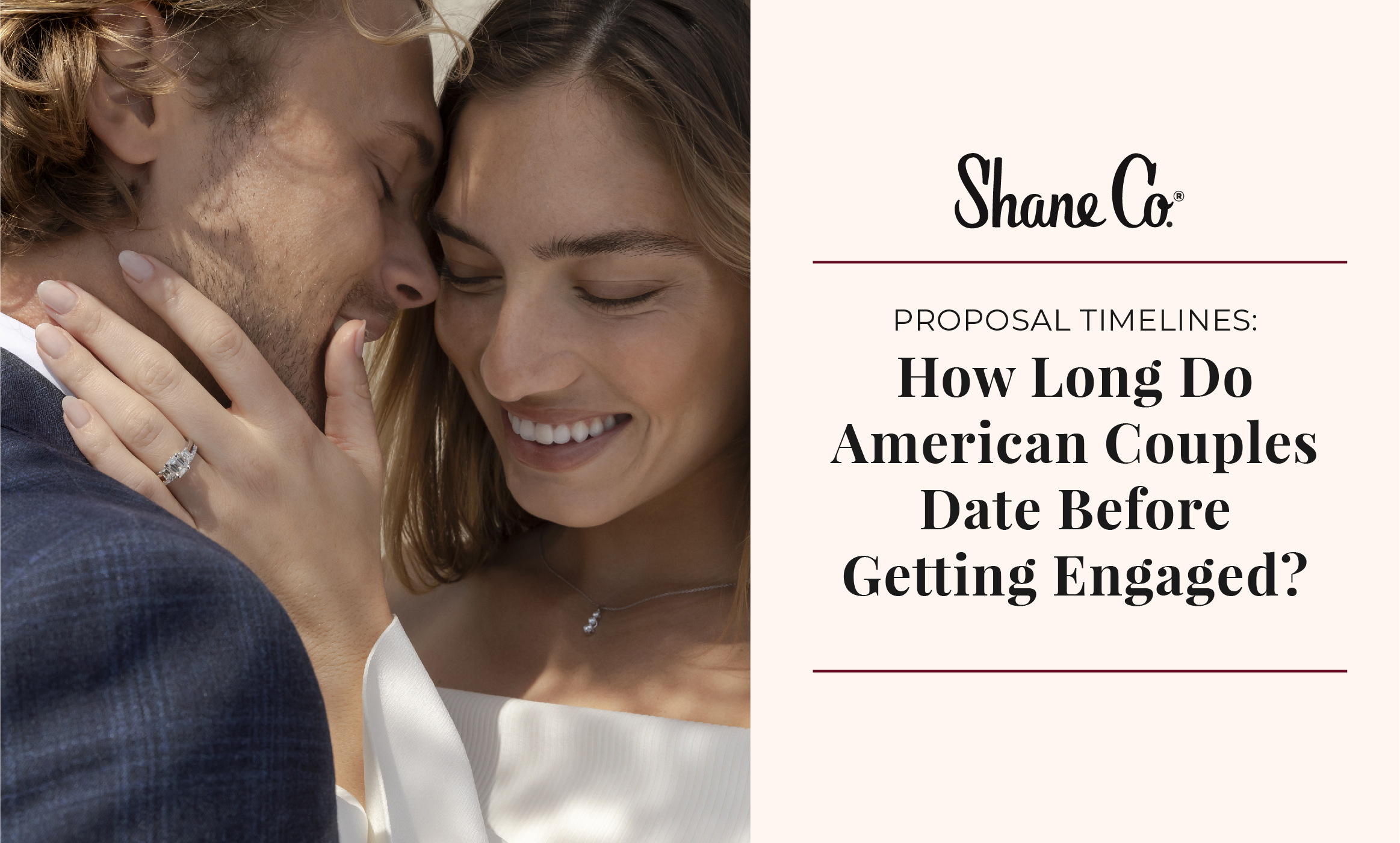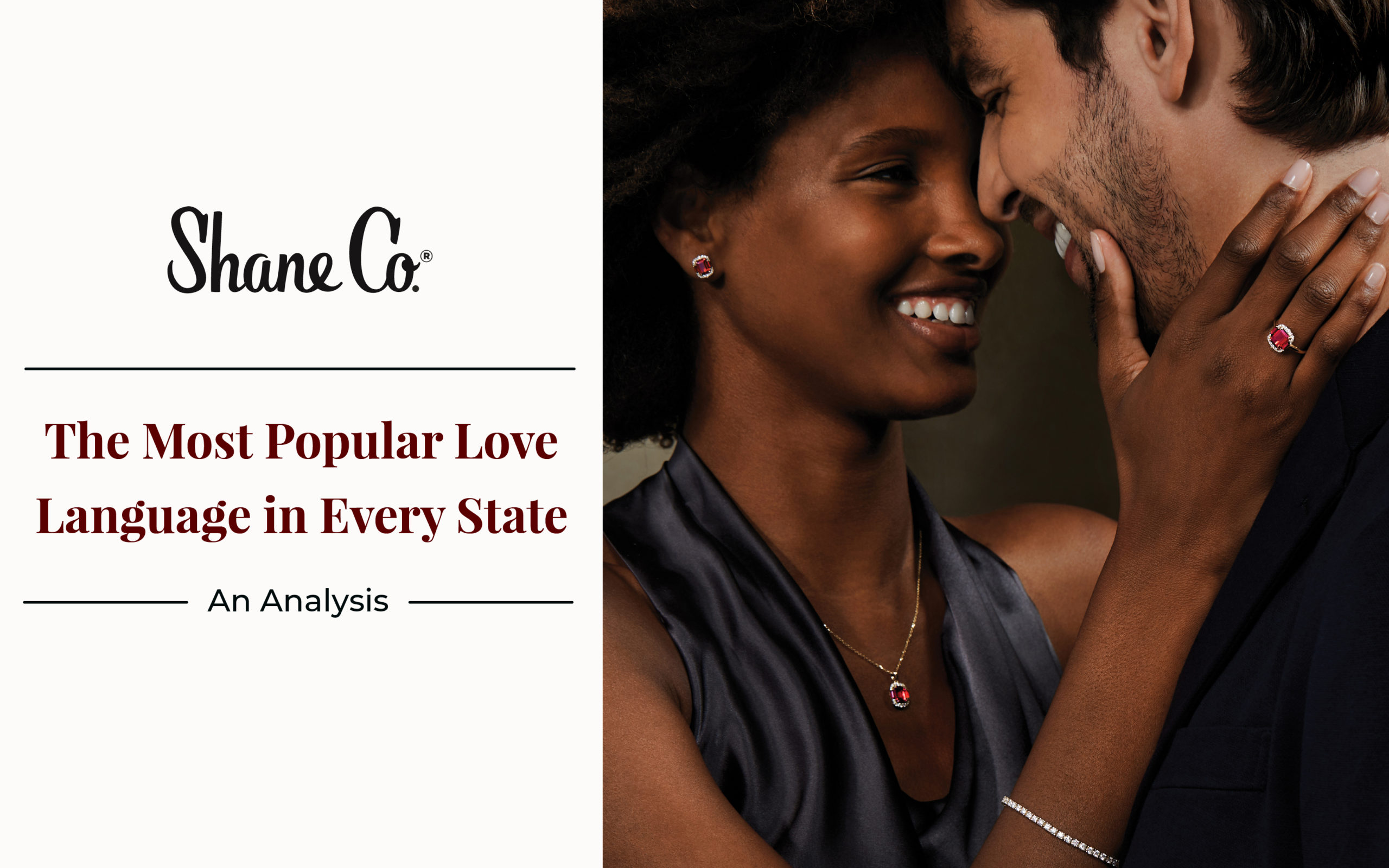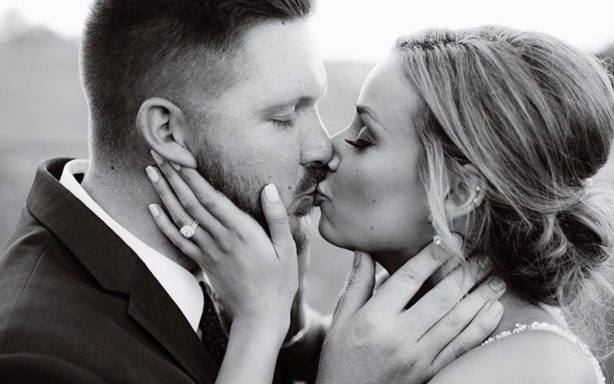
Still wondering if you’ve really found “the one?” Been curious about trying couples therapy but were too nervous to start? Questioned how to let your partner know that you’re ready for the next step in your relationship (engagement rings)? Well, the answers to these questions and more may surprise you.
We had the chance to interview Zach Brittle, a Gottman-certified therapist and author of Amazon’s best-selling The Relationship Alphabet: A Practical Guide to Better Connection for Couples. Zach has been counseling couples for over 12 years, using the Gottman approach of evidence-based couples therapy based on 40 years of marital research. He’s also the founder of forBetter, which offers online courses for couples, and the founder and cohost of Marriage Therapy Radio. We used our time with Zach to pick his brain about what makes a successful marriage possible, what to look for in potential partners, and how to know for sure that you’re ready to get engaged (hint: it’s complicated).
What are the most important questions couples can ask themselves before deciding to get engaged?
ZB: There are three main questions. Number one is, why get married at all? What’s your reason for getting married? Some people get married for a green card, for health insurance, for their parents’ approval, for love. The reason is not always clear right away.
Number two: Why this person? What are they that other people aren’t? What do I feel uniquely with them that I haven’t felt in other relationships? I usually recommend they write down 100-250-word concrete answers. Not just, “I love them” or, “They’re the one.” You need clarity.
Finally: Why marry this person? This one is less important than the others, but it kind of works in tandem. You can spend your whole life with somebody and not get married. So what is it that you want out of marriage with this person?
One of the things that Gottman discovered was that all couples have issues, and, actually, about 2/3 of a couple’s issues are permanent. They’re baked into the relationship — because she’s an introvert and he’s an extrovert, he’s messy and she’s neat, they speak different native languages, etc. I think it’s important for couples to know that many problems may last forever and that they begin to do some inventory on identifying those things. What is it that we know will never go away? It’s going to affect their marriage forever. Some of those things are deal breakers — and if they are, it might be better off that they don’t get married. If he wants to live by the ocean and she wants to live by the mountains, or if one wants kids and the other doesn’t, those can end up destroying the marriage. So these are things that couples need to talk about beforehand.
Are there any predictors for a healthy marriage (i.e., what qualities should we look for in relationships to ensure a healthy marriage)?
ZB: The most popular predictors that we talk about at the Gottman Institute are the predictors of divorce. We call them the Four Horsemen of the Apocalypse: criticism, contempt, defensiveness and stonewalling. They don’t tend to show up real clearly early on, but you can tell. You can note when those things are inherent in your partner.
What’s really, really critical is that couples have a capacity for repair. All couples are going to have conflict, and conflict doesn’t stress me out. If they argue, fine, but if they can’t repair, that’s a red flag. Couples focusing on learning how to extend and acknowledge and receive repair attempts is a signifier of intelligence that they can sustain a relationship.
What’s your favorite piece of advice to give to couples who are thinking about getting engaged?
ZB: Have some vision for the marriage, not just the wedding. In my context, couples want premarital therapy, and I don’t really offer that — I call it “transition to marriage” therapy. You can have therapy before marriage, but you ought to commit to some therapy afterwards, too. Slow and steady wins the race, and most of the work you do to get ready for marriage is going to be in the actual marriage, not planning the wedding or honeymoon.
Evidently, the “honeymoon phase” isn’t just a saying. Limerence phase — that’s the technical word for it. It lasts about two years and is fueled by adrenaline and novelty and newness … and it always ends. There has to be an awareness that what’s fueling your romance is more than just the newness or the fun. I think it’s really different now, too. It used to be you sort of slowly meet people and then you fall for them, then build your friendship and then eventually you have sex and so forth. These days it feels like people are putting that in reverse order. But there has to be a sort of sobriety about marriage.
In addition, this idea that 50% of marriages end in divorce is actually not correct — it’s really quite a bit lower. But most marriages that end in divorce end in the first seven years. Therefore, the first seven years are the years that require the most doggedness about the fact that your life has changed. A lot of people need to understand that, yes, it’s challenging, but it’s so rewarding after you get over that hill.
What’s the best way to bring up getting engaged to your significant other?
ZB: If you’re not sure that you and your partner are entering a part of your relationship where you’re thinking about marriage, then it’s probably not time to bring it up. Unless it’s just saying, like, “Hey, I have some ideas and I was wondering how you feel about this for the future.” The best advice I can give is to say that it’s not one 60-minute conversation, it’s more like 60 one-minute conversations where you’re kind of checking in. If there’s any kind of hint where one partner really wants to get married and the other isn’t sure, I would say don’t do it. However, if they say they aren’t sure about marriage at all, then it also gives you the chance to re-evaluate and think, “Okay, is this the right relationship for me?”
Have you noticed any new trends in marriage over the past few years (i.e. couples getting married later in life, couples getting married after having kids, etc.)?
ZB: It’s kind of hard to measure trends because my practice is so diverse. But I would say I suppose couples are getting married later in life … now, they’re more likely to live together for a while before getting married. I think that maybe people are delaying it — it’s more about choice. People used to get married to show that they are an adult. They had a list of what it means to grow up: get married, have kids, etc., and were sort of checking things off that list. Now, you get married because you’re an adult.
What’s the goal of couples therapy?
ZB: My goal is to find out what their goal is. Sometimes people just want some tools, and I can go, “Hey, that’s great.” But what are you building? What tools do you already have? Which ones are broken? For me, one huge goal is to make sure the couple is not therapy-dependent. I don’t want them to waste their time with me. Couples therapy doesn’t work — couples work. If they’re interested in transitioning their relationship, I want to work with them to figure out what their goals are and how I can help them reach them. Sometimes they want to have more sex, sometimes they want to make sure they’re not ignoring red flags, sometimes they want to learn how to deal with conflict better. It really depends on the couple’s agenda, and they might not even be aware of what they want when they come into therapy.
Is there a certain amount of time you recommend a couple date or live together before getting engaged?
ZB: It really depends on the couple. You have to consider that there are couples that are in arranged marriages who have never met and they still find a way to make a successful relationship, and there are also couples that live together for a long time and never get along. I don’t think there’s a standard timeline for everyone.
It’s all about their answers to those vital questions we talked about. For example, in an arranged marriage, the answers might be pretty straightforward. Why get married? Because marriage is a cultural covenant, it’s a way of protecting our religious community. Why this person? Because I trust my community to set me up in a way that will help me and my family be active members of the culture and fulfill a purpose. So they would use those answers to leverage their relationship, to make it work for both of them.
Really, there needs to be more of a “why” than a “how” or “how long.”
How important is it to discuss finances before getting engaged?
ZB: Pretty important. The hard thing about money in a relationship is that it’s measurable. So, if I make 100k and you make 70k, do I have 30k more value than you? What does it mean in terms of who’s staying home, how much spending money you’ll have, etc. Couples need to be clear about their attitudes toward money.
It’s one of those places where you get to say, “This is mine and this is hers or his.” Any time you have an “I” instead of a “we,” it creates an opportunity for struggle. What are we going to do about the math? And how do you make meaning, how do you make sense of money? You don’t want to get on the other side of the altar and have him say, “You make this much and I make that much so I get this much spending money and you get that much,” if that’s not how you actually want things to work throughout your marriage.
How did you know you were ready to get engaged to your current wife?
ZB: I don’t think anyone’s ever asked me that question. I’ve been married for 23 years, so I was 23 when I got engaged. I was probably in the category of people who thought that this was the next thing I was “supposed” to do, that this was how I was going to become an adult. In hindsight, I don’t know if I was ready. I dated a bit, but I was fresh out of college and we got engaged after a year and a half. I guess I just kind of knew. We were talking about it a lot and it was something we did together, not just like, “Surprise!”
I always say I’ve been happily married 22 out of 23 years. Around the eighth year, we almost broke. I would say I’ve been married to my wife twice. The first seven years were fueled by fun and newness, and the last bit has really been about knowing what it is to be on the brink and come back from the brink. The quality of the choice changed. At first you say “I do” to love them for richer or for poorer, through sickness and in health, but you really have no idea what you’re saying because you haven’t experienced any of that yet. After you have, and you can still say “I do,” the bond is stronger.
In therapy, couples get to talk about those powerful vow words, like “richer and poorer,” and try to figure out what it really means. To be truly successful in marriage, you have to experience it for yourself and come out the other side together.
How have you (and your wife) benefited from getting married?
ZB: We definitely get to operate in a certain kind of way. For one thing, we’ve created children, which has been a benefit to us and our community. We’ve benefited from experiencing the culture of marriage, whether it’s through church or friends or family. And there’s a comfort in knowing that you get to share your life with somebody. Ideally, somebody is there to walk with you through life, which can be a beautiful thing.
